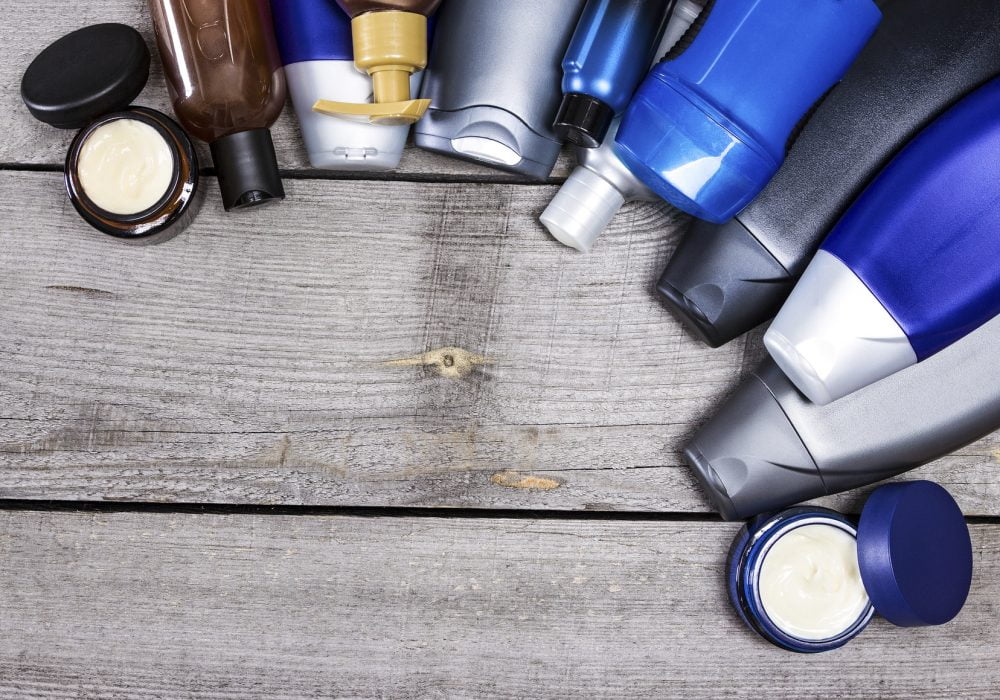Freya shares her story of living with psoriasis and Cochrane UK’s Senior Fellow in General Practice, Lynda Ware, looks at a recent Cochrane evidenceCochrane Reviews are systematic reviews. In systematic reviews we search for and summarize studies that answer a specific research question (e.g. is paracetamol effective and safe for treating back pain?). The studies are identified, assessed, and summarized by using a systematic and predefined approach. They inform recommendations for healthcare and research. on topical treatments for scalp psoriasis.
Page last checked 3 April 2023.
Freya’s story
“I first noticed that I had some kind of skin condition in my first year of university. Like most students, I had suffered from bouts of ‘freshers flu’ and had been spluttering my way through lectures along with everyone else. However, at one point I came down with a nasty chest infection that just wouldn’t budge and was convinced it was more than your regular cough and cold. Feeling utterly terrible I went to my campus doctor who barely looked up from his desk and sent me off with some Ibuprofen. I felt disheartened and frustrated, but went back to bed and waited for the illness to pass.
It must have been a couple of months later that I noticed small patches of dry skin on my arms, and little circles of redness, which began to crop up over my whole body. I went back to the doctors, this time to be told I had Guttate Psoriasis and it most likely appeared due to the previous illness being a streptococcal throat infection untreated by antibiotics. I was sent to get some sun, and moisturise and was given an unpleasant greasy ointment to use on the patches.
The areas affected began to rapidly spread, on my legs, chest, arms, ears and a couple on my face and I found that my scalp became inflamed by all shampoos and conditioners which led to chronicA health condition marked by long duration, by frequent recurrence over a long time, and often by slowly progressing seriousness. For example, rheumatoid arthritis. itching and dandruff – which was embarrassing and distressing as a self-conscious student! I remember at one point washing my hair with coconut shampoo (which had been recommended to me) three times in a row to try and help. Of course, I was only aggravating the situation, but was becoming increasingly desperate.
After several months of sitting in the sun at any opportunity and applying the ointment, and having oat baths (with a sock filled with oats floating around – thank you internet!) I was seeing little change, and eventually organised a private appointment with a skin specialist. They prescribed Exorex Lotion – 5% v/w Cutaneous Emulsion Coal Tar Solution and recommended I use this, sealed after with a thick medical moisturiser twice a day and see how it helped. They also recommended I try Eumovate cream on the small patches on my face and ears – both of these helped enormously and so I sought out a coal tar shampoo to see if that would help with my scalp. I think I tried every one on the market – and began to get really frustrated by the awful smells of the shampoos and my discomfort.
Looking online, I eventually came across Alphosyl 2 in 1 and started using it to wash my hair every other day, trying hard not to scratch or overly work at my scalp and allowing it to sit there for a minute or two before rinsing. Finally, a product that worked!
It is now five years since I first developed psoriasis and I now only need to use the coal tar solution on my elbows and regularly moisturise them or they can get very dry and sore, particularly in winter months. My scalp has never quite been the same and I have continued to only use Alphosyl shampoo as I find my scalp becomes irritated by regular high-street brands. This is a shame, as it is expensive and less kind to hair than regular shampoos, but worth the sacrifice. I’ve actually come to love its herby medicinal smell too, and my local chemist now stocks it especially for me.”
What’s the evidence on topical treatments for scalp psoriasis?
Freya eloquently describes the distress associated with psoriasis and the frustration involved in finding something that works quickly, consistently and without side effects.
A Cochrane Review Topical treatments for scalp psoriasis (February 2016) set out to evaluate topical treatments (this means drugs applied to the skin, for example – creams) for scalp psoriasis. People with chronic psoriasis often have lesions on their scalp. These can be difficult to treat with topical therapies because of the hair (to say nothing of the associated smell of certain products!).
What did the review look at?
The authors wanted to find out which topical treatments worked best to bring about clearance of scalp psoriasis or, at least, to bring about an improvement (‘response’). Both investigators and patients were involved in assessing the effects of the treatments.
59 randomizedRandomization is the process of randomly dividing into groups the people taking part in a trial. One group (the intervention group) will be given the intervention being tested (for example a drug, surgery, or exercise) and compared with a group which does not receive the intervention (the control group). controlled trialsA trial in which a group (the ‘intervention group’) is given a intervention being tested (for example a drug, surgery, or exercise) is compared with a group which does not receive the intervention (the ‘control group’). (RCTs) were included in the review with a total of 11,561 participants. Thirty of the studies were conducted or sponsored by the manufacturer of the studyAn investigation of a healthcare problem. There are different types of studies used to answer research questions, for example randomised controlled trials or observational studies. medication. Most findings were from relatively short-term studies of less than six months. Just one study investigated long-term treatmentSomething done with the aim of improving health or relieving suffering. For example, medicines, surgery, psychological and physical therapies, diet and exercise changes. of 12 months.
Although the authors found a wide variety of different topical therapies, three major comparisons were reported :
- Steroid versus vitamin D
- Combination steroid + vitamin D versus steroid
- Combination steroid + vitamin D versus vitamin D
What were the results?
Topical steroids and the combination therapy of steroid + vitamin D were more effective than vitamin D alone (high or moderate quality of evidenceThe certainty (or quality) of evidence is the extent to which we can be confident that what the research tells us about a particular treatment effect is likely to be accurate. Concerns about factors such as bias can reduce the certainty of the evidence. Evidence may be of high certainty; moderate certainty; low certainty or very-low certainty. Cochrane has adopted the GRADE approach (Grading of Recommendations Assessment, Development and Evaluation) for assessing certainty (or quality) of evidence. Find out more here: https://training.cochrane.org/grade-approach) and less likely to cause harmful side effects (high or moderate quality of evidence). Steroid creams of moderate, high and very high potency tended to be similarly effective and well tolerated.
What more do we need to know?
Are all strengths of steroid creams really equally effective and safe? Does the carrier (the inactive component, such as cream or shampoo, which acts as a ‘vehicle’ for the drug) affect the way the drug works? Which preparations are safe long-term? What is the impact of these treatments on quality of life?
Links:
, , , , , , . Topical treatments for scalp psoriasis. Cochrane Database of Systematic ReviewsIn systematic reviews we search for and summarize studies that answer a specific research question (e.g. is paracetamol effective and safe for treating back pain?). The studies are identified, assessed, and summarized by using a systematic and predefined approach. They inform recommendations for healthcare and research. 2016, Issue 2. Art. No.: CD009687. DOI: 10.1002/14651858.CD009687.pub2. http://onlinelibrary.wiley.com/doi/10.1002/14651858.CD009687.pub2/full
Plain language summary of this review http://www.cochrane.org/CD009687/SKIN_topical-treatments-psoriasis-scalp


